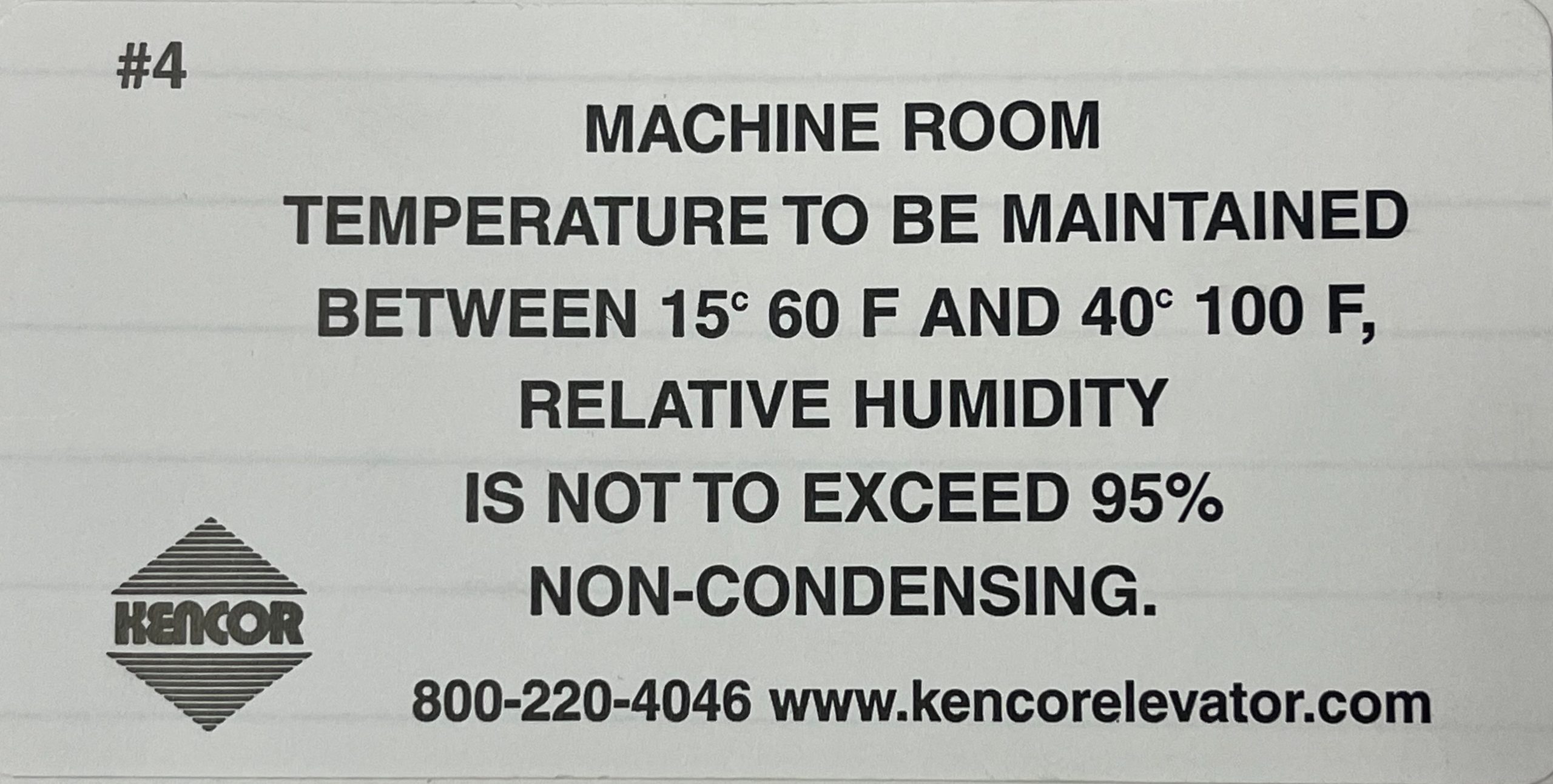How Do Warmer Temperatures Affect My Elevator?

In the summer months, we can experience very high temperatures which can affect your elevator’s performance. This can lead to increased elevator service calls, equipment failures, controller failure, relay failure, door operator failure, and motor failures among others.
Machine Rooms
Elevator machine rooms are susceptible to extreme swings in ambient temperature when not controlled properly. Each component within the elevator machine room can react differently to these changes in temperature. Most elevator machine rooms should be maintained between 60- and 100-degrees Fahrenheit. Most of the new PLC or Microprocessor based elevator systems are more susceptible to extreme temperature swings than older systems. Most notable of which, on hydraulic elevators, where extreme temperature swings can negatively impact the hydraulic oil which impacts the hydraulic control valve causing a variety of potential safety concerns.
Extreme temperatures of elevator machine rooms, and the negative effects that it can have on elevator equipment, is one of concern for everyone in the elevator industry including manufacturers of equipment, code officials, enforcing authorities, and building owners and operators.
A stable ambient temperature of an elevator machine room will allow the devices located in the machine room to operate in a reliable and repeatable fashion. Temperatures that go outside of the recommended ambient temperature ranges decrease the life of the equipment and can cause increased failures of the equipment.
Building Power Fluctuations and Outages
As summer temperatures increase, overall power usage also increases due to widespread high usage of air conditioning systems. This typically puts a strain on the power grid, and subsequently can result in extreme power irregularities.
One of the most common of these irregularities is often referred to as a “brown out”, in which the power company sends less voltage to the building than normal, as they struggle to keep up with increased demand. As an example, if the main incoming line voltage from the power company was 240 vac during normal operating conditions, under this condition the building may only be receiving 210 vac from the power company. This dip in voltage is not enough to affect many systems, as many keep working, but it can cause adverse effects to the elevator. These effects can include blowing fuses, motor damage, and/or cause protective devices to turn the elevator off completely.
In extreme situations the power can go out in its entirety which can potentially damage elevator components even more. Once the power is restored there is an inrush of current that can potentially cause serious damage to the elevator system. There are a variety of protective devices available to help protect the elevator in these situations.
Please feel free to reach out to us to discuss this further. 1-800-220-4046 or info@kencorelevator.com
